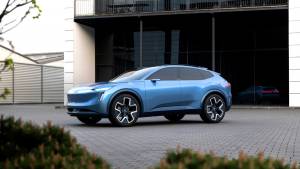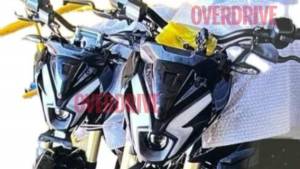Live Updates: Budget 2019 - Auto sector
With keen eyes across the country watching for updates from Interim Finance Minister Piyush Goyal during the announcement of the 2019 Union Budget, so too is everyone in the automobile industry. India's auto industry is a huge contributor to the country's GDP, and industry insiders have high hopes from the interim budget - especially those auto makers with hopes riding on hybrid and EV technology. The industry is keen to see more support from the government, in the form of incentives and restructuring of taxes, and time will tell if that is what they receive. You can follow updates from the 2019 Union Budget here, and to see how it affects car-buyers and the industry as a whole.
Good takeaways from today's announcement, and not only for manufacturers of electric vehicles, two-wheeled or four. Yadvinder Singh Guleria, Senior Vice President - Sales and Marketing, Honda Motorcycle and Scooter India says, “The Govt’s announcements towards strengthening rural economy (PM Kisan Samman Nidhi, interest subvention, mega pension scheme) and continued impetus on infrastructure development (trebling rural road construction, new waterways and railways services) will strengthen economy in the long run. In the short term, more disposable income in the hands of 3 crore households for whom two-wheeler is a basic transport need is good news for the industry. We are cautiously optimistic that the resultant positive customer sentiments can offset the industry slowdown caused by the insurance premium hike earlier this year and bring back the industry momentum to earlier estimate of higher single digits.”
Parveen Kharb, CEO and co-founder, Twenty Two Motors, an electric two-wheeler manufacturer commented, "We welcome the Union Government's budget announcement of making a Clean and Green India. The Union budget focused on making India pollution-free and electric vehicles will play a key role in achieving the goal. The import duty reduction on electric vehicle components will further reinforce this and lead to wider acceptance of electric vehicles, however some SOPs for Li batteries could fast-track the move."
While we will have to wait for the announcement of figures, the industry remains hopeful with the government's statement of vision from today. Charles Frump, Managing Director, Volvo Car India says, “We welcome the Government’s vision to protect the environment and lead energy revolution with Electric Vehicles in the coming years. Volvo Cars’ future roadmap is completely in sync with this vision as globally we plan to go fully electric in the next few years. The fully electric car will make its entry into the Indian market soon after its global launch. We not only plan to launch the first-ever locally assembled plug-in hybrid vehicle in India later this year but also bring in four more plug in hybrid vehicles next year.”
Reactions to the Interim Union Budget are positive, especially in the key area of electric vehicle development. Shekar Viswanathan, Vice Chairman and Director, Toyota Kirloskar Motor, comments, "The overall budget perspectives are positive covering wide spectrum of areas... The focus to strengthen the infrastructure [road, rail & air] will certainly facilitate industrial growth and promote ‘Make in India’ paving way for better mobility & accelerate the ease of doing business. We applaud the Government of India’s focus on EV drive towards reducing fuel import. Toyota has been a pioneer in electrified space offering alternate mobility solutions [HEVs, EVs, FCVs, PHEVs] globally. We would further continue our concerted efforts in this direction to boost sustainable mobility to enhance ever-better & comfortable living of the society. The vehicle emission based tax regime would boost this EV vision, towards achieving a cleaner and greener environment. We hope that the tax revenues will continue to grow, enabling the implementation of the budget announcements. We now look forward to the full-fledged budget that would be presented during May-Jun this year.”
Dhivik Ashok, CEO Go GreenEoT, electric two-wheeler manufacturer reacts to the 2019 Union Budget, "The interim budget presented by the government in due course of general elections has come as a hope for economic strengthening and easy life for a common man. Although the government underlined their view on FAME2 again to encourage Electric Vehicles (EVs), yet a clear date and target are missing. The government also cleared the clouds by defining the products which come under respective duty structures. Somehow, the decision of increasing 5 per cent duty on batteries will create an obstacle in wide adoption of EVs, but we hope that government will revise the policy framework to attain the target of 30-40 per cent EVs on a conservative scale. Norway can be such an inspiration for India where mass adoption of EVs was lead by the government. We expect that the government will soon come with clear indicators for EV space as well to take a step ahead towards the pollution-free, sustainable, and healthy nation. We are now awaiting the finalization of EV policy to see the real way the forward government is planning on taking EVs to scale in India."
Mr Sohinder Gill, Director General- Society of Manufacturers of Electric Vehicles (SMEV) says, “Prime Minister Shri Narendra Modi’s and Finance Minister Shri Piyush Goyal’s mission of bringing an Electric Vehicle revolution to India by 2030 is a truly path-breaking and will surely provide much-needed impetus to the industry. The government’s focus on the use of clean energy in the transportation sector would certainly help our country tackle the issue of climate change. EV industry welcomes our Hon'ble Finance Minister’s commitment towards making the country pollution free, in his budget speech 2019-2020. We hope the government would soon announce a concrete plan of action with its time-bound implementation in order to fulfil its stated vision. SMEV strongly feels that an initial high dose of incentives and actions must be taken in the next 1 or 2 years to relaunch the electric mobility mission that has sort of lost steam in the recent years due to flip flop of policies.”
Of note, auto stocks are all in the green with positive reactions to no negative news in the 2019 Union Budget.
The Government announces no tax on income up to Rs 5 lakh per year. This frees up a portion of an individual's income to invest in cars or motorcycles
Also of importance, construction of rural roads in India will be trebled, with an allocation of Rs 19,000 crore, under the Pradhan Mantri Gram Sadak Yojana.
Electric vehicles will eventually provide energy security which will reduce India's dependence on oil imports. This, in turn, will cut India's fiscal deficit.
Yesterday the government had announced the lowering of import duties on parts and components for electric vehicles, from the 15 to 30 per cent slab to the 10 to 15 per cent slab, in a bid to encourage local assembly of EVs.
"India will lead the energy revolution in the world with electric vehicles.", says Interim Finance Minister Piyush Goyal during the 2019 Union Budget announcement. However, no specifics regarding tax structures were announced.
A Volkswagen India representative talks about the company's expectations from 2019 Union Budget, "This year, the automotive industry is undergoing a major technological transformation as we shift from BS IV to BS VI norms, enhance our safety standards and increasingly prepare towards developing the e-mobility landscape. With increased investments, we urge the government to support and uplift the declining market sentiment by reducing the GST rate and cess applied on luxury vehicles. Additionally, before we think of subsidies on hybrid and electric vehicles, it is necessary for the government to outlay a stable regulatory and taxation framework that supports and incentivises the manufacturing of electric vehicles in India. As an industry, we must realistically understand the willingness of a customer and the value proposition that electric vehicles will offer. We sincerely urge the government to prepare a conducive business case for auto manufacturers. For the success of electric vehicles in India, we must ensure that all regions (not limited to metro cities only) receives 24-hour electric supply."
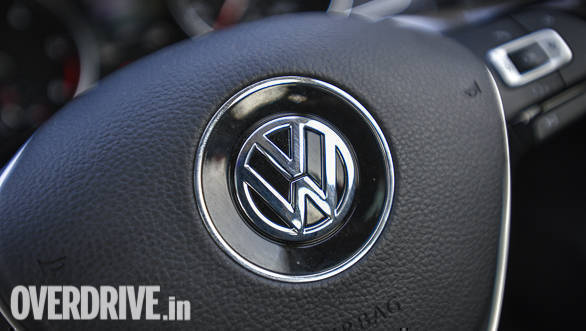
Sugato Sen, Deputy Director General, SIAM, on 2019 Union Budget Expectations, "On tax side, Union Budget currently covers only Customs Duty and Direct Tax as Excise and Service Tax have been subsumed in GST and handled by the GST Council. With respect to customs duty, SIAM has suggested to the Government that for CBU of cars and two-wheelers, rates should remain at the same level. However, 40 per cent rate should not be applicable to CKD and SKD. R&D incentive is more important for the automobile industry today as we have to invest significant amount of money over the next few years for R&D to meet various emission and safety improvements in India."
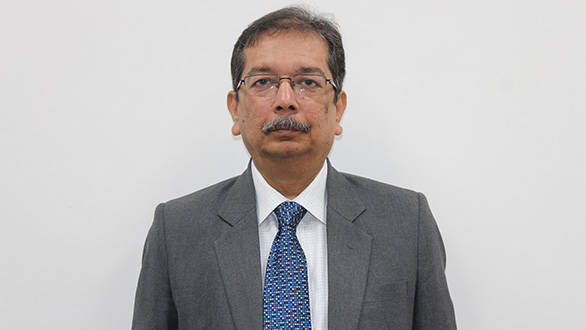
Audi India believes that taxes on cars have a huge impact on the customer's buying decision whether it is an affordable or a luxury car. Moderation in taxes will lead to more volumes which in turn will create larger tax revenues for the government in the long run.
Budget 2019 expectations: Audi India head, Rahil Ansari says, "The Government should lower and uniform the tax structure, especially for the luxury segment. At present the luxury segment is taxed too heavily (up to 70 per cent). Currently, auto industry contributes close to 7.1 per cent to the GDP and more than 30 million people are employed (directly & indirectly) by the Auto sector. Especially the luxury Automobile Industry is acting responsibly by heavily investing in 'safe' & 'more efficient eco-friendly vehicles'; it is imperative (and we expect) that Government should support our efforts by reducing the taxes on luxury cars to encourage the industry. In addition to this, we would like to have a consistent tax structure at least for five years, which will give us a good horizon to plan our products and investments effectively.
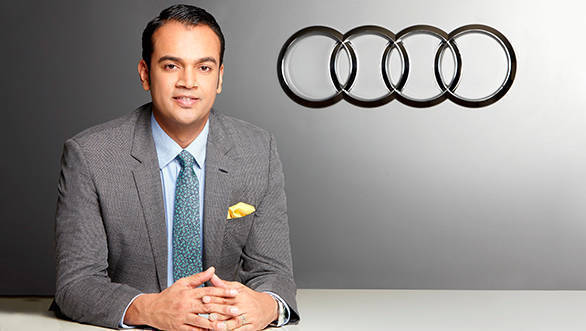
"To address the key cost challenges that the industry faces, we would like to see reduced import duties on lithium ion cells, motors and motor controllers. These three account for a major proportion of the vehicle cost and any relief on these would provide strong financial support for OEMs to bring out vehicles that are near-equal performance to petrol/diesel vehicles. Today's cost structures make it largely unviable to do so. To encourage Make in India, we would recommend an increase in import duty for fully assembled batteries, since there are local options available in India," commented by Tarun Mehta, Co-founder & CEO, Ather Energy.
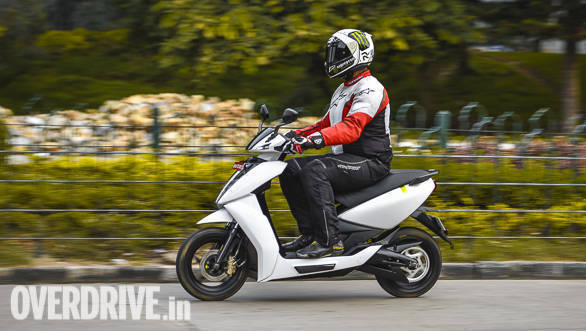
Top Stories
Latest Videos
Most Popular
- Budget Sportbike Showdown: Kawasaki Ninja 500 vs Aprilia RS 457 vs Yamaha YZF-R3
- 2014 Triumph Daytona 675 vs 2024 Kawasaki ZX6R - A Decade of Evolution in Supersport Motorcycles
- Mumbai-Pune Expressway speed restrictions updated
- Nissan Magnite EZ-Shift review - is the AMT any good?
- Nitin Gadkari states that tax on Hybrids should be reduced to 12 percent in the coming future
Network18 Updates






